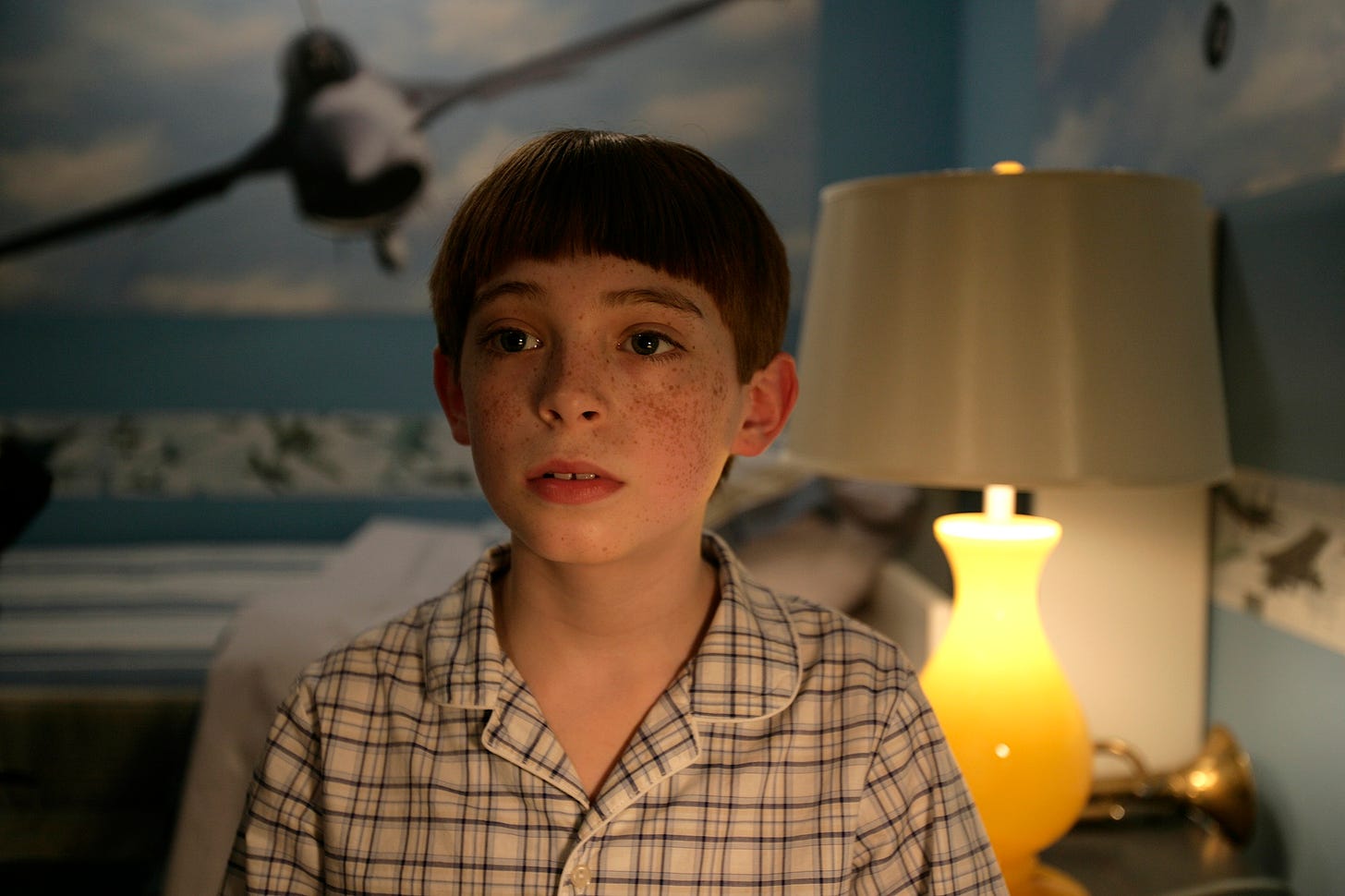Billy & Timmy & Todd
In Todd Solondz's 'Happiness' and 'Life During Wartime,' the Maplewood boys, Billy and Timmy, grow up in a family poisoned by deviance and denial. What kind of men will they be?
Warning: We generally don’t alert readers to content in our pieces, but the following essay features graphic descriptions and slurs in reference to Happiness and Life During Wartime, so proceed with caution.
“I don’t care about freedom and democracy. I just want my father.” — Timmy Maplewood, Life During Wartime
In the most audacious scene in Todd Solondz’s 1998 film Happiness—a film that is certainly not short on audacity—Dr. Bill Maplewood (Dylan Baker), a well-to-do psychiatrist and father of three in suburban New Jersey, sits down with the eldest son Billy (Rufus Read), a middle-school-aged boy, for what will be the last in a series of intimate heart-to-hearts between father and son. At this point in the movie, Bill has been exposed as a pedophile and a rapist, having drugged and assaulted Billy’s friend Johnny Grasso during a sleepover and committing a similar, undisclosed sex crime against another one of his son’s classmates while the kid’s parents were away in Europe. Billy is a naive and curious boy, awkward even by standards of a Solondz movie, and his father has spent much of the movie answering his sexual questions with remarkable candor. If anything, his father’s lies have been lies of omission, given the one terrible secret that had been hidden until now. With his arrest and a certain prison sentence to come, he can be honest about that, too.
The comic rhythm of Happiness generally involves confronting the audience with some unimaginably horrific scenario and then following up with a deadpan, often ironic punchline. One example: At a diner, a lonely woman (Camryn Manheim) tearfully confesses to murdering and dismembering the doorman who raped her after helping carry groceries, including multiple tubs of ice cream, up to her apartment. When a waiter turns up mid-conversation, she orders ice cream for dessert. A second: When Billy, in one of his father-son sex talks, mentions that Ronald bragged about having an 11-inch penis, Bill scoffs at the revelation. “It’s not length that matters,” he tells young Billy. “It’s width.” And so on. There may be a verse-chorus-verse predictability to the way Solondz writes these scenes, but they pay off nearly every time and start to gain in dramatic weight.
In a dark room, as if words this uncomfortably intimate could have ever been expressed in the light, a tearful Billy approaches his father, who doesn’t look like he wants the company but is always willing to carve out time for his boy. Billy tells him that other kids are calling him a serial rapist and pervert—those exact words are graffitied on the Maplewoods’ house, in fact—and he asks his father if he did anything with Johnny and Ronald. Bill admits that he did. Billy asks for more detail: What did he do, exactly? What did he do it for? What was it like? Would he do it again? The answers, respectively; “I fucked them,” “I couldn’t help myself,” “It was great,” and “Yes.” All shocking responses, as if he were attached to a lie detector rather than talking to a child who might be better off not knowing the full depths of his father’s monstrousness. Then we get to the mother of all Solondz punchlines: “Would you ever fuck me?” asks Billy. “No,” his father replies. “I’d jerk off instead.”
Solondz invites you to laugh at this moment, should the gut-punch leave you with any air in your lungs, but Happiness and its 2009 semi-sequel, Life During Wartime, care most about the development of the two Maplewood boys, Billy and his little brother Timmy, who’s too young to realize what’s going on in Happiness, but has questions of his own years later as a 12-year-old in Life During Wartime. While Happiness is a survey of multiple characters, many of whom get much more screen time than Billy, it’s important to note that the boy’s quest to have his first orgasm is the narrative through-line that brings Solondz’s opus to a hilarious close. He cares about how these children are affected by the behavior and guidance of the massively flawed parents who are supposed to be managing their development. What lessons will they carry into adulthood themselves? Can Billy and Timmy do any better?
Keep reading with a 7-day free trial
Subscribe to The Reveal to keep reading this post and get 7 days of free access to the full post archives.




